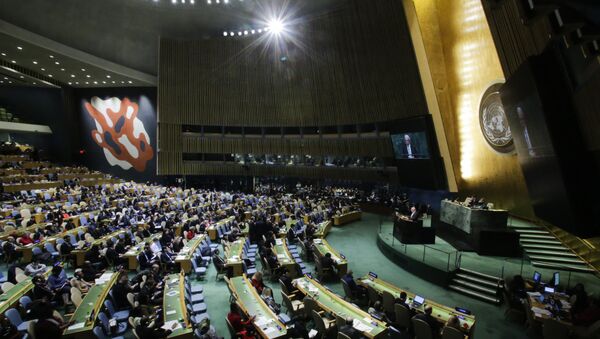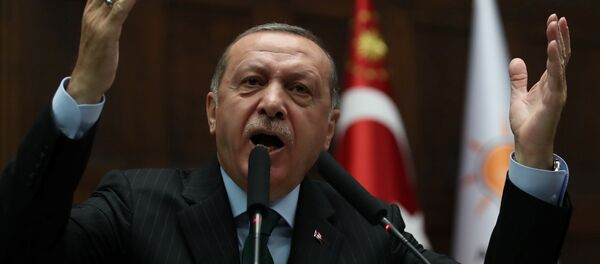In his analysis, published by RIA Novosti, the observer recalled that in recent years, the US has suffered a string of setbacks in the foreign policy arena, whether it comes to the Korean nuclear standoff, issues surrounding the Iran nuclear deal, or even its sanctions policy against Russia. According to Mirzayan, the December 21 vote at the UN General Assembly on the Jerusalem issue was but "the latest in this series of defeats."
The follow-up Turkish and Yemeni resolution at the General Assembly, held at an emergency special session on Thursday, passed overwhelmingly, with 128 countries voting in favor and 9 against, the resolution's text "demanding" that all countries comply with earlier Security Council resolutions on the multi-confessional city's status.
Of course, Mirzayan noted, on its own, the General Assembly resolution does very little. Palestinian Authority President Mahmoud Abbas can speak all he likes about the vote representing the weakness of the US and Israeli position, but words alone will not sweeten the bitter realities of the US decision. "Resolutions by this body do not carry any weight, and Israel has long become accustomed to regular criticism."
But the US chose another path. "Habitually crossing his arms in front of his chest, Donald Trump, on the eve of the vote, declared that those who support the resolution stand to lose US aid funding…US UN ambassador Nikki Haley sent a letter to all delegations, warning that Trump would take their vote in favor of the draft resolution 'personally'."
And while many observers "were amazed by the blatant boorishness of the US and its direct threats against their allies, the sharp and in some ways even bold rhetoric coming from Washington was not some kind of impromptu," Mirzayan stressed. "It can be explained by the hawkish nature of the country's new national security strategy – a change of the tools used to preserve Pax Americana."
However, the General Assembly vote proved that "rigidity does not mean results," Mirzayan added. In this sense, the US attempt "to blackmail its allies has failed. In fact, most of the US's allies showed that they not only do not fear Trump's threats, but are not apprehensive of them, either."
"It's difficult to say what motivated [these defiant US allies]. Some may think that Trump does not reflect the collective views of the US establishment, even as far as the status of Jerusalem is concerned… Others fear quarreling with the Arabs, both in the Arab countries and among their own electorate. Finally, others still are simply tired of bending to American will, and decided that it was time to protect their own interests."
Ultimately, Mirzayan noted that if President Trump wants to continue to be taken seriously abroad, "he will have to make good on his threats and really cut back funding, at least to those nations that voted in favor of the resolution."
Representative Haley vowed that the US would "remember" the vote, including when it comes to the question of future financing for the international body.
"And the Americans really will have to remember it, if, of course, they want the Europeans to speedily forget about this attempt at rebellion. And not repeat it," the analyst concluded.





